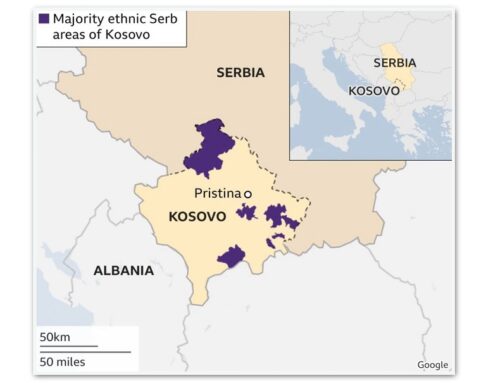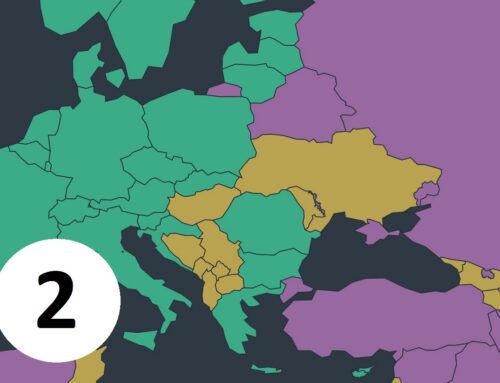Elma Demirović
That the whirlwind of conservatism is raging in Europe is no longer news. In recent years, there is almost no European country that has not witnessed the strengthening of the clergy’s influence on the socio-political scene or the breakthrough of right-wing populism into positions of power. Unfortunately, in the MOSO (CESE) countries democracy and pluralism are under attack. Political leaders in post-socialist fragile democracies are increasingly willing to undo institutional security and disregard human rights in order to pursue their populist agenda. And when democratic norms and standards are violated, women are among the first marginalized groups to bear the consequences of such events. Governments are increasingly promoting and offering a return to “traditional values” as a solution to social problems. However, these are just excuses for propagating extremely patriarchal norms, as they equate the protection of gender equality and women’s rights with a loss of cultural and traditional identity, as a part of efforts to secure broader support for their anti-human rights agenda, which would, consequently, greatly limit and even take away women’s acquired rights. This is also evident from the fact that right-wing parties are outspoken opponents of abortion on demand and are actively advocating for its ban.
Violence against women is one of the most widespread problems in the field of human rights violations in the world. The most brutal consequence of that violence is femicide, which is happening more and more frequently in the MOSO region. A 2021 World Health Organization report found that nearly one in three women worldwide experience physical or sexual violence in their lifetime, an issue linked to women’s economic opportunities, access to sexual education, and reproductive rights. Apart from that, the representation of women in the media is also very problematic in the region, because the current media coverage of violence against women and domestic violence embodies patriarchal social norms, where victims of violence are often portrayed in such a way that they are blamed. Femicides are often portrayed as “crimes of passion,” framing the crime as a love affair rather than an illustration of the patriarchal belief that men own women. However, media misrepresentation of women is not the only issue in the region. Punishments for perpetrators of domestic and sexual violence are often weak, while the burden of proof is mostly on the victims. The rise of social media has given abusers new ways to inflict violence on women and girls. But it is also a tool to express and encourage solidarity among them. Protests and marches followed in the capitals of MOSO regions, fueled by frustration over a perceived lack of action by authorities to combat gender-based violence. Women’s rights organizations are criticizing governments that they are sending the message to women that they have no control over their own bodies.
All countries in the regions must criminalize domestic violence as a matter of urgency, remove the burden of proof from survivors, and abandon policies requiring mandatory mediation and reconciliation for the sake of family preservation. The authorities must also provide adequate resources for protection and support services, including shelters, and ensure that sexual and reproductive health services remain available and accessible. But there is already a tool for establishing an effective and comprehensive legal framework on domestic violence and violence against women – the ground-breaking Istanbul Convention. However, Bulgaria, the Czech Republic, Hungary, Latvia, Lithuania, and Slovakia still have not ratified the Istanbul Convention. The Polish government on many occasions declared that it will begin preparing the formal procedure to withdraw from the Convention. The rest of the region is not much better in the effective implementation of the Convention, where gender-based violence is still a pervasive issue, and many are not informed by a gendered understanding of violence against women and often reflect entrenched stereotypes. Institutional, legal, and other safeguards against such violence are largely inadequate and are being eroded even further due to a surge in traditional, patriarchal, and openly misogynistic political rhetoric.
To take back women’s rights, we need power, commitment, and determination. And women need to be unapologetic in claiming the obvious – women are equally valuable human beings who have fundamental human rights, which are inherent and inalienable to them as they are to men. Nevertheless, any institutional change will be weak if governments do not address the rise of “traditional” narratives, which continue to hold back women’s rights. Instead of exploiting these attitudes for political gain, governments in the region should put women’s rights at the center of their policy agenda.
Sources:
Publications:
Heinrich Boll Stiftung. (2021). Žene na Balkanu – prava i borbe. https://ba.boell.org/sites/default/files/2022-02/perspectives_BHS%20web.pdf
The Kvinna till Kvinna Foundation. (2022). Women’s Rights in Western Balkans. https://kvinnatillkvinna.org/publications/womens-rights-in-western-balkans-2022/
Articles:
https://www.aa.com.tr/en/europe/thousands-of-women-march-for-more-rights-in-western-balkans/2840655
https://balkaninsight.com/2021/09/14/women-in-balkan-media-still-far-from-top-positions/
https://balkaninsight.com/2023/03/08/southeast-europe-marches-for-womens-rights/
https://balkaninsight.com/2023/06/07/for-women-in-the-balkans-digital-space-is-a-double-edged-sword/
Picture: Dipti Kulkarni


